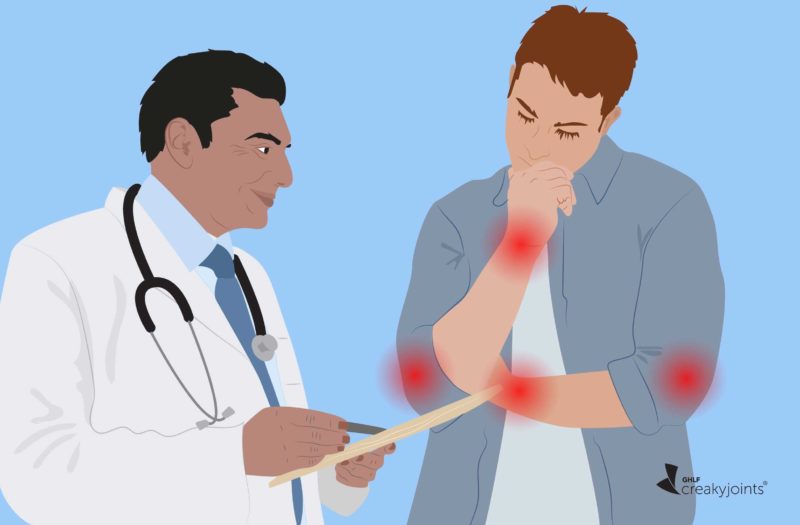Key Takeaways
- Study finds only 59 percent of RA patients followed prescribed treatment after six months.
- Forgetfulness and cost issue aren’t the only reasons why patients don’t take their medications as prescribed.
- The biggest reason RA patients don’t take their meds is due to a lack of shared decision-making with their doctors.
About half of people who have a chronic health condition don’t take their medication as prescribed, a problem that doctors refer to as medication non-adherence. Non-adherence often leads to poorer health outcomes and may even be deadly. So why is this practice so common among patients?
You might assume that forgetfulness or cost issues are mostly to blame, and in some cases that’s correct. But a new study that focused on rheumatoid arthritis (RA) patients in Spain found that the biggest predictor of treatment adherence is shared decision-making (or lack thereof).
The study, which was published in the Annals of the Rheumatic Diseases, included about 150 RA patients. When the study began, all of them were taking a traditional disease-modifying anti-rheumatic drug and/or a biologic. Yet six months later, only 59 percent of them were still following the treatment regimen their doctor had prescribed.
For the purpose of this study, patients were deemed “adherent” if they scored more than 80 percent on compliance questionnaires. That means some in the adherent group might have missed an occasional pill or delayed the recommended time between infusions, yet they were sticking with the treatment plan most of the time.
What researchers really wanted to know, of course, was why 41 percent were no longer following doctor’s orders. According to their findings, “the main predictor of treatment adherence was the agreement on treatment between patient and physician.”
In other words, patients who were not fully on board from the beginning were far less likely to stick with their prescribed RA treatment.
Here’s the tricky part: The authors said that whether or not these patients should even be considered non-adherent is debatable. “If a patient has not agreed on a specific treatment, we cannot say that the patient is not adherent, as adherence is, by definition, a volunteer decision based on an agreed prescription,” they explained.
The study also found that patients were more apt to take medication as prescribed if they received information about how well the drug works as well as information about the possibility of needing to adapt it to their needs in the future.
The authors suggested that clinicians should “make sure they approach the shared decision-making process efficiently and provide the practical information that the patient demands.”
Found This Study Interesting? Get Involved
If you are diagnosed with rheumatoid arthritis, or another rheumatic or musculoskeletal condition, we encourage you to participate in future studies by joining CreakyJoints’ patient research registry, ArthritisPower. ArthritisPower is the first-ever patient-led, patient-centered research registry for joint, bone, and inflammatory skin conditions. Learn more and sign up here.
Balsa A, et al. Multilevel factors predict medication adherence in rheumatoid arthritis: a 6-month cohort study. Annals of the Rheumatic Diseases. November 2021. doi: https://doi.org/10.1136/annrheumdis-2021-221163.
Cush J, et al. Adherence to Medication – Predictive Factors in RA. Rheum Now. December 2021. https://rheumnow.com/news/adherence-medication-predictive-factors-ra.
Kleinsinger F. The Unmet Challenge of Medication Nonadherence. The Permanente Journal. July 2018. doi: https://doi.org/10.7812/TPP/18-033






